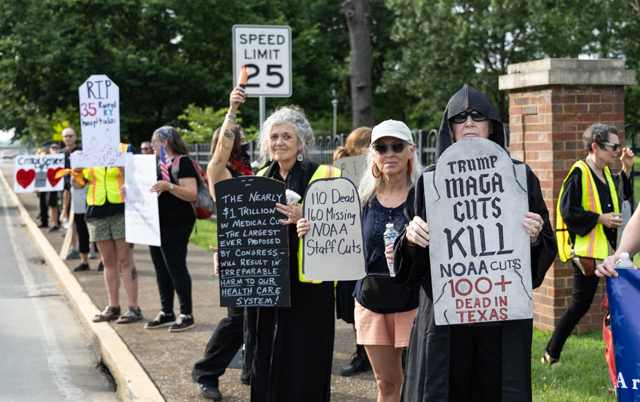WKU keeps tuition rates flat
Published 6:45 pm Wednesday, May 27, 2020

- Timothy Caboni
Following a spring semester that included a pivot to distance learning amid a deadly virus pandemic and resulting budget upheaval, Western Kentucky University’s Board of Regents convened Wednesday for a special meeting focused on approving a new tuition and fees schedule for students.
Given the choice between keeping tuition flat with the current-year rates or raising tuition by 2 percent – a move that would’ve initially generated an additional $2.4 million in tuition revenue – the board opted to keep rates unchanged.
Trending
Undergraduate tuition for a full-time, residential student is currently $5,401 per semester, and the graduate rate for resident students is $607 per credit hour.
The board also moved to waive for one year the fee associated with online courses, which according to the current fees schedule totals $150 per credit hour for undergraduate courses.
In presenting this recommendation to regents, Susan Howarth, WKU’s executive vice president for Strategy, Operations and Finance, described the move as pivotal in order to entice students back to campus in the fall.
“We really feel this is important to meet our enrollment projections,” Howarth said, adding that some of the larger required courses will need to migrate to an online format given physical distancing guidelines amid the coronavirus pandemic.
“If they’re being forced online, we shouldn’t be applying that surcharge,” she said. “(For) all other mandatory fees, we’re recommending that they be held to the current year rate.”
The board’s actions Wednesday followed a decision by the Kentucky Council on Postsecondary Education in April to forego a statewide cap on tuition next year for in-state, undergraduate students at public colleges and universities.
Trending
Ahead of the vote during Wednesday’s special meeting, several board members spoke in favor of keeping tuition rates steady, citing the example of other universities around the state that have opted to do the same. The decisions to keep tuition rates where they are currently and waive the distance learning fee for one year were passed 10-0.
Seeking to frame the conversation, WKU President Timothy Caboni outlined the advantages and disadvantages tied to the tuition and distance learning fee decisions.
“What we’re balancing here is the needs of families and students and the needs of the institution,” he said.
Caboni went on to suggest that the foregone revenue that would result from not taking the moderate 2 percent tuition increase “is not $2.4 million. It winds up being about $11 million” over time. That would amount to “a significant hit over time to the budget,” Caboni said.
Caboni also noted that online education also costs more to develop, deliver and support.
In fact, waiving the distance learning fee for one year is expected to result in a roughly $4 million revenue reduction with $1.6 million of that falling on the university’s Division of Extended Learning and Outreach to manage, while roughly $2.5 million would contribute to the university’s total anticipated budget shortfall of $27 million for fiscal year 2020-21.
That said, Caboni added, “Our primary goal is to get every student who was here in the spring back on campus this fall, and whatever we need to do, we need to do that.”
When it comes to how many students WKU might see next fall, Regent Jason McKinney said “I think a lot of students may be sitting on the fence,” about attending.
“I don’t want to give them any news about WKU that may make that decision for them,” he said. “I like keeping the tuition flat for this year.”
Student Regent Will Harris also favored keeping tuition rates steady, describing it as an act of solidarity with students and families.
“I think this speaks volumes to our institution and the support that we do show our students here,” he said.
In related news, Caboni also teased WKU’s campus reopening plans, which will be released in their draft form publicly for the first time Thursday afternoon, offering a clearer picture of what classes and campus life might look like in the fall.
“What we know is that until there’s a vaccine (for COVID-19) … we’re going to have to live beside this virus. It’s not going away,” he said.
Given that, Caboni said “the way we work will be different than last fall. We’re going to have to keep space between ourselves. There may be some large courses that we used to offer in lecture halls that will have to be offered in an online version.”
He framed the crisis as an opportunity to innovate course delivery.
“How do we use this as an opportunity? This is a tremendous chance for us to think differently about how we teach,” Caboni said.






